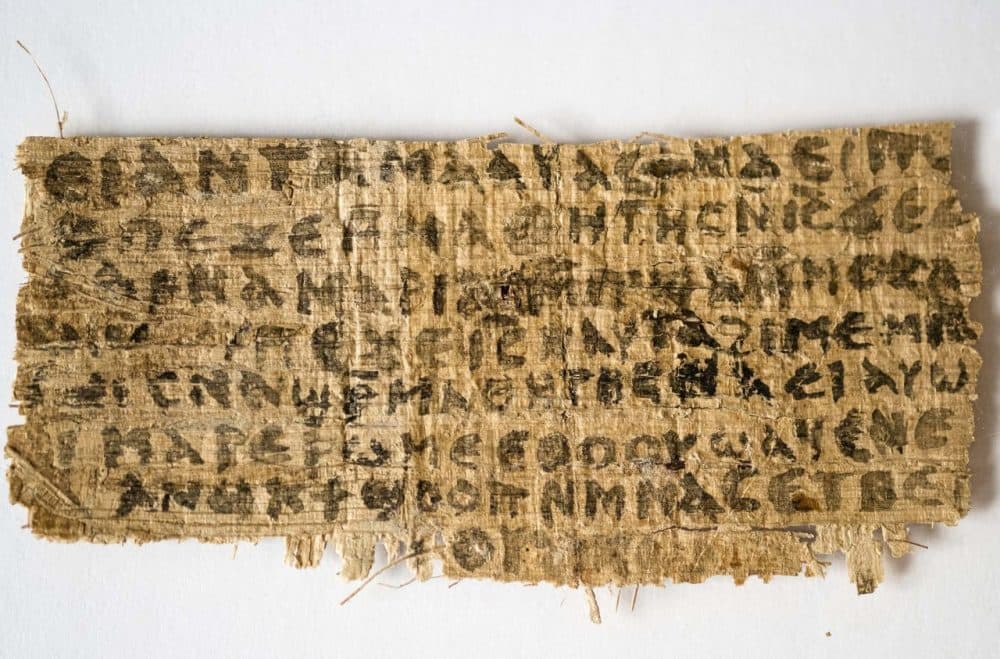Advertisement
Professor Says Papyrus Fragment Raises Important Questions About Early Christianity

Researchers at Harvard, MIT and Columbia have concluded that a fragment of papyrus that refers to Jesus speaking of a wife is very likely an ancient document from the 8th century Egypt and not a forgery.
The fragment — the Gospel of Jesus's Wife — caused an uproar when it was unveiled in 2012 because of its possible theological implications. Many claimed it was a fake. But the new testing being published Thursday finds the papyrus is similar to other ancient documents.
Professor Karen King, the historian at Harvard's Divinity School who originally unveiled the document in 2012, joined WBUR's Morning Edition.
On her reaction to the research:
It feels less to me about vindication than I’m looking forward to moving past forgery and onto questions about the importance of this fragment for writing the early history of Christianity and the kinds of questions it raises.
On the fragment's content:
Well of course the phrase that gets everyone’s immediate attention is this line: “Jesus said to them, ‘My wife.’ ” But what interested me as I began to spend more and more time with this, I did some work on what early Christians had to say about Jesus being married, and I began to notice that this fragment talks about “my mother.” It says, “My mother gave me life.” It talks about Mary. It says, “Mary will be worthy. She is worthy.” It talks about “My wife” and it talks about a woman disciple.
As I was looking at this grouping of “my wife,” Mary, “my mother, “my disciple,” and in terms of the context of early Christianity it seems like the fragment is weighing in on an argument that’s going on about whether or not it’s better to marry or to be a celibate virgin. And here is a document that is put in Jesus’s mouth making an argument that wives and mothers can be fully disciples of Jesus.
On whether this means the historic Jesus had a wife:
No, it doesn’t. The fragment’s written too late to actually provide sound, historical evidence about whether the historical Jesus was actually married or not.
What’s interesting is that tradition has come down to us saying he was not married but we really as historians don’t know for sure.
On the debate about the relative virtues of marriage and celibacy:
You have this very strong, kind of pro-marriage language in this letter in the New Testament, and yet as we go down the pike another century, another couple centuries, really being a virgin, being celibate, those are the positions that are most highly valued. It’s kind of interesting to say, how did that happen? I think this fragment is caught in the middle of that debate.
On the document's message:
I think it’s actually fairly conservative. That is to say it sits with a New Testament text like 1 Timothy arguing that sexually active men and women, people who are married, can be fully disciples of Jesus, but it’s radical in the sense that if Jesus were married — and Jesus is held by Christians to be fully human and without sin — it means it’s possible to have sexuality without sin, whereas tradition has always carried this kind of taint, you know, that even in marriage, there’s something a little sinful about sex. If Jesus were married, however, that would not be the case.
Earlier:
This article was originally published on April 10, 2014.
This segment aired on April 10, 2014.
